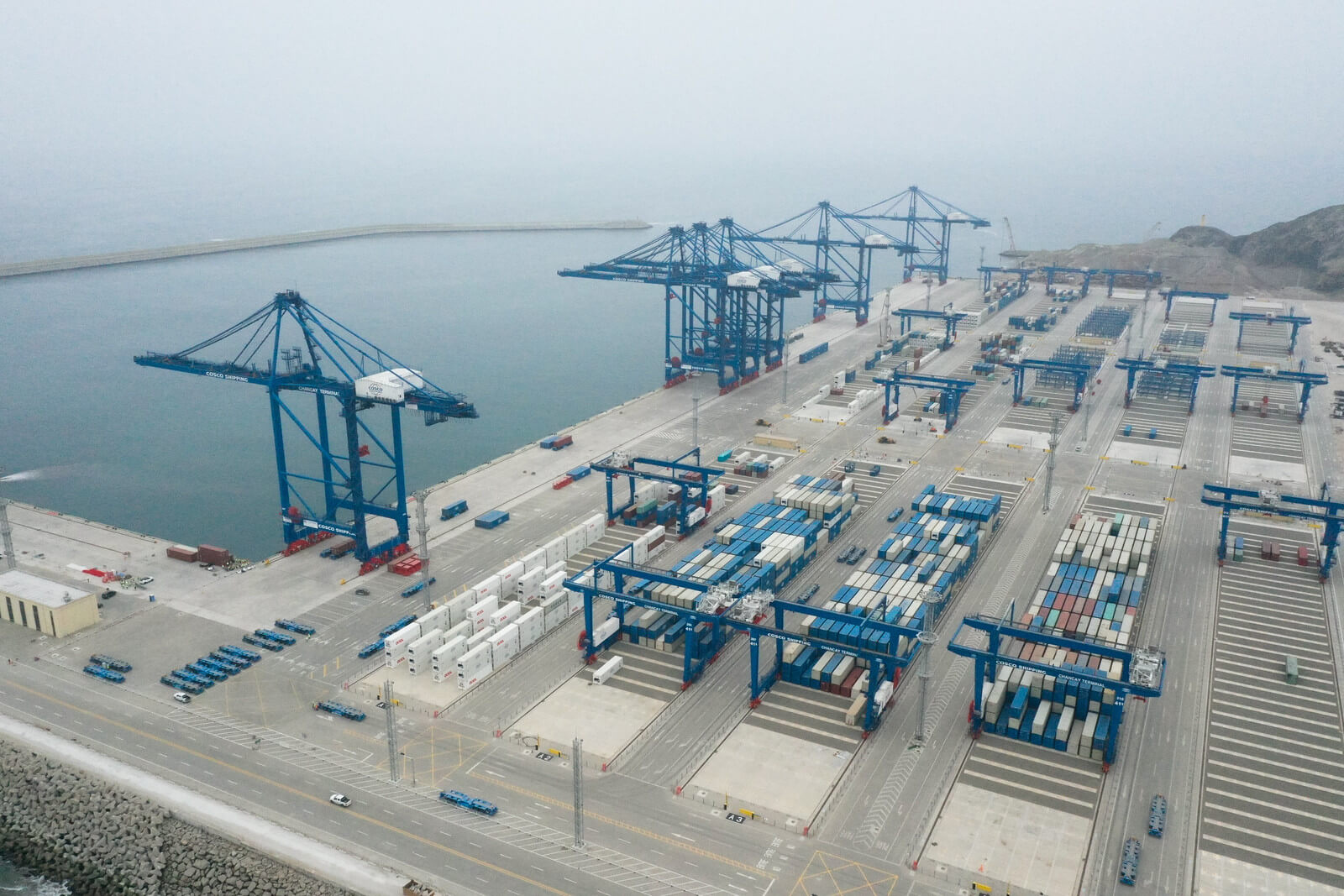Chinese Ports in Latin America: A New Risk to Regional Security?
Photo: MINCETUR Perú.
The newly inaugurated Chancay Port in Peru, financed by China, could become a major hub for international organized crime, according to a report by the International Coalition Against Illicit Economies (ICAIE). Experts warn that Mexican cartels, Chinese triads, and other criminal networks could exploit the port’s infrastructure for money laundering, drug trafficking, and smuggling of illicit goods.
The report highlights that the lack of external oversight on COSCO Shipping, the Chinese company operating the port, could facilitate corruption and illegal trade, mirroring patterns seen in other Chinese-controlled ports in Latin America, Europe, and Asia. In Brazil, for example, the Paranaguá port, controlled by China Merchants Port Holdings, has become a key transit point for cocaine smuggling to the Balkans.
Additionally, concerns have been raised about Chinese port cranes, used in Chancay, Guayaquil, and other regional ports, which could be leveraged for espionage, collecting strategic information on commercial and maritime movements. China’s 2017 National Intelligence Law mandates its companies to cooperate with the Chinese government, heightening concerns over the security of these ports.
The report also warns of illegal trade in timber, wildlife, and minerals through Chinese-controlled port infrastructures, reinforcing China’s role as the largest importer of Latin America’s natural resources.
With the construction of San Juan de Marcona Port, also financed by China, the risks of expanding illicit activities and state surveillance in the region could grow, impacting security and economic development across Latin America.
Main Source:
Los puertos chinos en Latinoamérica y sus operaciones ilícitas – Diálogo Américas
Related News:
Peru and China Promote Sustainability in Ports and Maritime Transport
Chinese participation in Peru’s ports is on the rise
China expands its influence in Latin America’s maritime sector
You may be interested in:
Puertos chinos en Latinoamérica, puerta abierta al crimen organizado – Total News

